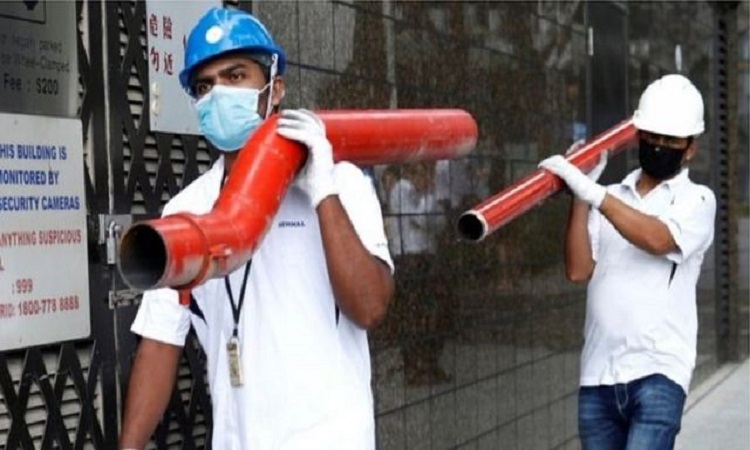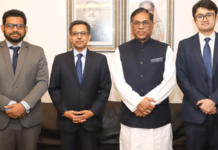Around 77 percent of the international and internal migrants in Bangladesh sought employment during the April-November period last year due to the Covid-19 pandemic. In 61 percent of households, at least one member has lost a job or income opportunity due to the pandemic.
Three-quarters, or 77 percent, of the marriages that took place during that time had brides under the age of 18, which is 26 percent higher than the national child marriage rate of 51 percent surveyed in 2018.
These data were revealed in a study jointly conducted by BRAC, UN Women Bangladesh and New York University. This study highlights the changes in the demographic, economic and social environment in middle-class cities, upazilas and rural areas of Bangladesh due to the impact of reverse migration during the Corona period.
The findings and findings of the study, titled 'Demographic and Socio-Economic Changes Due to Covid-19: Challenges of the New Situation', were released online at Policy Dialogue yesterday. Member of Planning Commission and Senior Secretary of General Economy Department was the chief guest at the event. Shamsul Alam.
Analyzing the results of the study, it can be seen that about 25 percent of the returnee migrants in the surveyed households are concerned about the repayment of the immigration loan, which ranges from 76 thousand to 7 lakh rupees. About 44 percent said they had not found any gainful employment. Some of these families have to meet their expenses by withdrawing savings or by renting or mortgaging various assets.
Surveyed households experienced a 58 percent decline in average monthly remittances during the pandemic, in stark contrast to national reports of higher inflows of remittances during the period.
Studies have shown that families returning to rural or secondary cities will put pressure on existing local scarce resources, particularly in the education and health sectors. Among the migrants, 4.57 percent are school students aged 5-16 years.
Returning women, mainly internal migrants, have faced several problems during the coronavirus period which this study has highlighted. For example, 74 percent could not engage in any productive or income-generating activities.
About 34 percent of the households surveyed have lost some job or earning capacity and become economically inactive. Moreover, three-fourths of households surveyed have experienced a decrease in their average monthly income due to the coronavirus.
During this period average household monthly savings fell by 62 percent and debt increased by 31 percent. On the other hand, the monthly average expenditure has decreased by only 8.6 percent
Analyzing the results of the study, it can be seen that the expected gross birth rate per thousand in 2020 is 20.2 percent, which is higher than the national gross birth rate per thousand in 2018 of 18.2 percent.
Dr. Shamsul Alam said the unwillingness of the migration has created frustration among people, especially among women. We need to think about how to create economic opportunities for them. For this we need to formulate a recovery plan—the next budget could be that plan.
UN Women's Bangladesh Representative Shoko Ishikawa said child marriage has become a major problem. Migrants are under pressure due to loss of income. It is important to explore how social safety nets can support them, such as creating more job opportunities, proper skill development training, etc.
This survey was conducted in 6 thousand 370 households from 10-25 December 2020 through numerical and quantitative research techniques where April-November period of last year has been considered as reference period.







